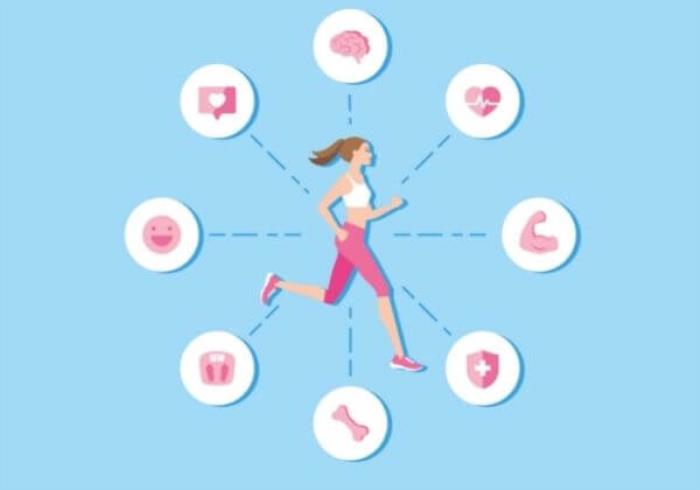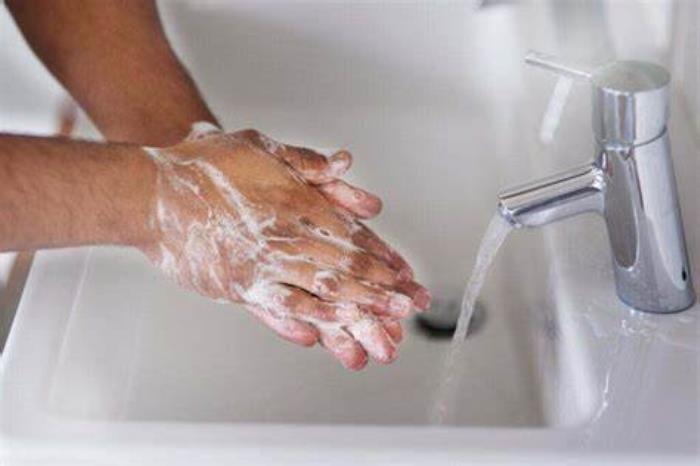Maintaining a robust immune system is crucial following a liver transplant due to the immunosuppressive medications required to prevent organ rejection. These medications can leave patients more susceptible to infections and other complications. Therefore, enhancing immune system health becomes a priority in the post-transplant care plan. A well-functioning immune system helps in fighting off pathogens and supports overall recovery.
Medical disclaimer: This content is for general awareness and does not replace a doctor’s consultation. For diagnosis or treatment decisions, consult a qualified specialist.
Role of Nutrition in Strengthening Immune System After Transplant
Nutrition plays a vital role in bolstering the immune system after a liver transplant. A balanced diet rich in vitamins, minerals, and antioxidants can enhance immune function. Foods high in vitamin C (like citrus fruits), vitamin E (found in nuts and seeds), and zinc (present in legumes and whole grains) are particularly beneficial. Adequate hydration is also essential for maintaining optimal health and supporting the body during recovery.
Importance of Regular Physical Activity for Immune Health
Engaging in regular physical activity is crucial for enhancing the immune system after a liver transplant. Exercise improves circulation, promotes better oxygenation of tissues, and helps in the management of stress. Activities such as walking, cycling, or yoga can be tailored to individual fitness levels. It is essential to consult with healthcare providers to develop a safe and effective exercise regimen that accommodates post-transplant recovery.

Maintaining a Healthy Weight to Support Immune Function
Achieving and maintaining a healthy weight is essential for supporting the immune system after a liver transplant. Excess body weight can lead to increased inflammation and negatively impact immune responses. A combination of a balanced diet and regular physical activity can help in achieving a healthy weight. Monitoring weight regularly and making necessary lifestyle adjustments can significantly enhance overall health and immune function.
Importance of Adequate Sleep for Immune System Recovery
Quality sleep is a critical factor in enhancing the immune system following a liver transplant. Sleep deprivation can impair immune responses and increase the risk of infections. Aim for 7-9 hours of uninterrupted sleep each night. Establishing a regular sleep schedule, creating a restful environment, and avoiding stimulants before bedtime can improve sleep quality and support immune health.
Managing Stress Levels to Boost Immune Health
Chronic stress can have detrimental effects on the immune system, particularly after a liver transplant. Stress management techniques such as mindfulness, meditation, and deep-breathing exercises can help reduce stress levels. Engaging in hobbies, spending time with loved ones, and seeking support from mental health professionals can also contribute to improved emotional well-being, thereby enhancing overall immune function.
Regular Monitoring of Health Post-Liver Transplant
Regular health monitoring is crucial for individuals who have undergone a liver transplant. Routine check-ups allow healthcare providers to assess immune system function, monitor for signs of organ rejection, and adjust immunosuppressive medications as needed. Blood tests and imaging studies can help identify potential complications early, ensuring timely interventions and promoting long-term health.
Vaccination Recommendations for Liver Transplant Recipients
Vaccinations are an essential component of post-transplant care to protect against preventable diseases. Individuals who have undergone a liver transplant may need specific vaccines due to their compromised immune system. It is crucial to discuss vaccination schedules with healthcare providers to ensure optimal protection against infections, particularly during the first year post-transplant when the risk of complications is higher.
Avoiding Infections: Hygiene Practices for Transplant Patients
Adopting stringent hygiene practices is vital for preventing infections in individuals who have undergone a liver transplant. Regular handwashing, avoiding crowded places, and staying away from sick individuals can significantly reduce the risk of exposure to pathogens. Additionally, ensuring that food is prepared safely and maintaining a clean living environment are essential measures to protect the immune system.

Hydration and Its Role in Immune Function Post-Transplant
Proper hydration is fundamental for maintaining immune system health after a liver transplant. Water helps in the transportation of nutrients, removal of toxins, and overall cellular function. It is recommended to consume adequate fluids throughout the day, particularly if medications or dietary changes affect hydration levels. Monitoring urine color can be a simple way to assess hydration status.
Understanding the Role of Probiotics in Immune Health
Probiotics, or beneficial bacteria, can play a significant role in enhancing the immune system post-liver transplant. They help maintain gut health, which is closely linked to overall immune function. Incorporating probiotic-rich foods such as yogurt, kefir, and fermented vegetables can support gut microbiome balance and improve immune responses. Consult with a healthcare provider before starting any new supplements.
Importance of Avoiding Tobacco and Alcohol for Immune Health
Avoiding tobacco and alcohol is crucial for individuals post-liver transplant. Both substances can suppress the immune system and increase the risk of complications, including infections and organ rejection. Patients should adhere to their healthcare provider's recommendations regarding substance use to support optimal recovery and long-term health.
Incorporating Herbal Supplements Safely After Transplant
While some herbal supplements may offer health benefits, it is essential to approach them with caution after a liver transplant. Certain herbs can interact with immunosuppressive medications or affect liver function. Always consult with a healthcare professional before introducing any herbal supplements to ensure they are safe and beneficial for your immune system health.
Establishing a Support Network for Emotional Well-Being
Building a strong support network is vital for emotional well-being after a liver transplant. Connecting with family, friends, and support groups can provide encouragement and reduce feelings of isolation. Sharing experiences with others who have undergone similar procedures can be particularly beneficial. Emotional health plays a significant role in overall immune system function and recovery.
Understanding the Signs of Infection Post-Transplant
Recognizing the signs of infection is crucial for individuals post-liver transplant. Symptoms such as fever, chills, increased pain, or unusual drainage should be reported to a healthcare provider immediately. Early identification and treatment of infections can prevent serious complications and support the immune system in maintaining health.
Role of Regular Follow-Up Appointments in Immune Health
Regular follow-up appointments with healthcare providers are essential for monitoring immune system health after a liver transplant. These visits allow for comprehensive assessments, including blood tests to evaluate liver function and immune status. Consistent communication with healthcare professionals ensures timely adjustments to treatment plans, promoting optimal recovery and long-term health.
How to Handle Post-Liver Transplant Medications and Side Effects
Get insights into managing medications and side effects after a liver transplant. Proper adherence to prescribed medications is crucial for long-term success, but these drugs can sometimes lead to side effects. Learn tips for minimizing discomfort, recognizing potential issues, and maintaining a healthy lifestyle.
Overcoming Challenges in Cross Blood Group Liver Transplants
Understand the advancements in cross blood group liver transplants. This procedure, once considered highly complex, is now more accessible due to innovative medical techniques and better immunosuppressive therapies. Learn how challenges like immune rejection are managed to ensure successful outcomes for patients.
Adapting Your Lifestyle for Long-Term Immune Support
Adapting lifestyle choices is critical for long-term immune system support after a liver transplant. This includes maintaining a balanced diet, engaging in regular exercise, managing stress, and avoiding harmful substances. Continuous education about health and wellness can empower patients to make informed decisions that enhance their overall health and well-being.
Best Liver Transplant in India
The Best Liver Transplant in India provides life-saving treatment for patients with end-stage liver disease, offering advanced surgical techniques and comprehensive post-transplant care for successful recovery.
Best Liver Transplant Hospitals in India
The Best Liver Transplant Hospitals in India are equipped with cutting-edge technology and expert medical teams, ensuring top-notch care and optimal recovery for liver transplant patients.
Liver Transplant Cost in India
The Liver Transplant Cost in India offers an affordable solution for patients needing liver transplantation, ensuring access to world-class care at competitive pricing.
Best Liver Transplant Surgeons in India
The Best Liver Transplant Surgeons in India are highly skilled in performing liver transplants, providing precise surgeries and personalized care to ensure the best possible outcomes for their patients.
FAQs About Boosting Immune System Health After Liver Transplant
What are the best dietary choices to support immune health after a liver transplant?
Incorporating a variety of fruits, vegetables, whole grains, lean proteins, and healthy fats into your diet can significantly enhance immune system health. Foods rich in antioxidants and vitamins are particularly beneficial.
How can I safely exercise after a liver transplant?
Start with low-impact activities like walking or gentle stretching, gradually increasing intensity as tolerated. Consult your healthcare provider for personalized recommendations based on your recovery progress.
Are there specific vaccinations I should receive after a liver transplant?
Yes, vaccinations such as influenza, pneumococcal, and hepatitis vaccines are often recommended. Discuss your vaccination schedule with your healthcare provider to ensure optimal protection.
What signs should I look for that may indicate an infection?
Be vigilant for symptoms like fever, chills, increased pain, or unusual drainage. Early recognition and reporting of these symptoms can prevent serious complications.
How can I manage stress effectively after my transplant?
Engaging in mindfulness practices, meditation, and regular physical activity can help manage stress levels. Building a support network also plays a crucial role in emotional well-being.
Explore the critical aspects of liver transplant logistics, focusing on organ preservation, transport, and post-transplant care. Understanding Organ Preservation and Transport in Liver Transplants
Recognizing signs like jaundice, fatigue, and encephalopathy early can indicate the need for a liver transplant, potentially saving lives. Signs That Indicate You May Need a Liver Transplant Soon
Factors like MELD score, donor availability, and geographic location significantly influence the speed of liver transplants. Why Some Patients Get Liver Transplants Faster Than Others?